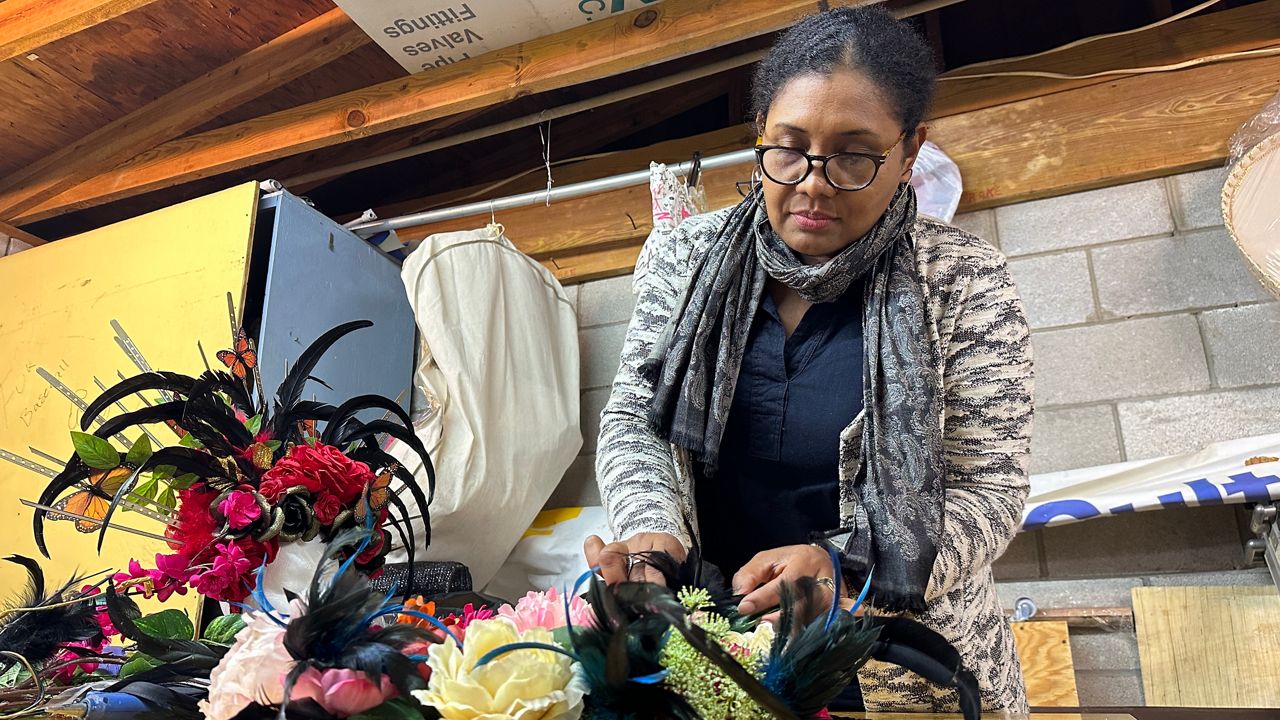LEXINGTON, Ky. — Today is Halloween and those taking part in any of the festivities may already have a costume. This year’s total spending on costumes is expected to reach a record of $4.1 billion, according to the National Retail Federation.
Soreyda Benedit Begley left Honduras and came to Lexington over 20 years ago. She has been involved with fashion in several ways, such as designing clothes for her own clothing line, being hired to make wedding dresses, and volunteering to help Casa de la Cultura, a nonprofit in Lexington.
Begley appreciated fashion as a child and was in a sewing academy at 13 years old. She used that skill to work in sweatshops at 14, where she would work seven days a week, only making $30 in that time frame. She did it to support her family and studies. This drove her to have a passion for ethical and sustainable fashion..
Begley enjoys making headdresses and is currently working on a few for some local events. (Spectrum News 1/Geraldine Torrellas)
“I would love to see a world where the planet is a priority and where the livelihood of other people is a priority, that we’re not just exploiting people to make profit,” said Begley.
Among other fashion trends, single-use Halloween costumes can be problematic for the environment. Most of them are made of plastic materials, and according to a 2019 report by Fairyland Trust and Hubbub, around seven million costumes are thrown away in the United Kingdom every year. With the U.S. having a population that is almost five times bigger than the U.K., some say it’s likely that the number of costumes that are thrown out in the U.S. is much higher.
“Because our landfill system is set up differently, we don’t have that exact statistic, but I can say that the disposal of apparel products in general in the United States is a problem,” said Angela Dial, a visiting assistant professor at Eastern Kentucky University who is also a freelance designer.
Dial also says that individual people can take steps to be more sustainable with Halloween costumes.
“Anytime you can take a textile that’s already in the environment, it’s already been made, it exists, and re-purpose it into something else, that is a sustainable process,” said Dial.
Begley says that more sustainable options may not be as affordable and that people should get civically active to hold leaders accountable.
“As everyday people, we need to be engaged because there’s so much on the line for ourselves and the next generations,” said Begley.
Dial recommends that instead of discarding costumes, to donate them to theater programs or even look into organizations that use those textiles to make dog beds for shelters.

